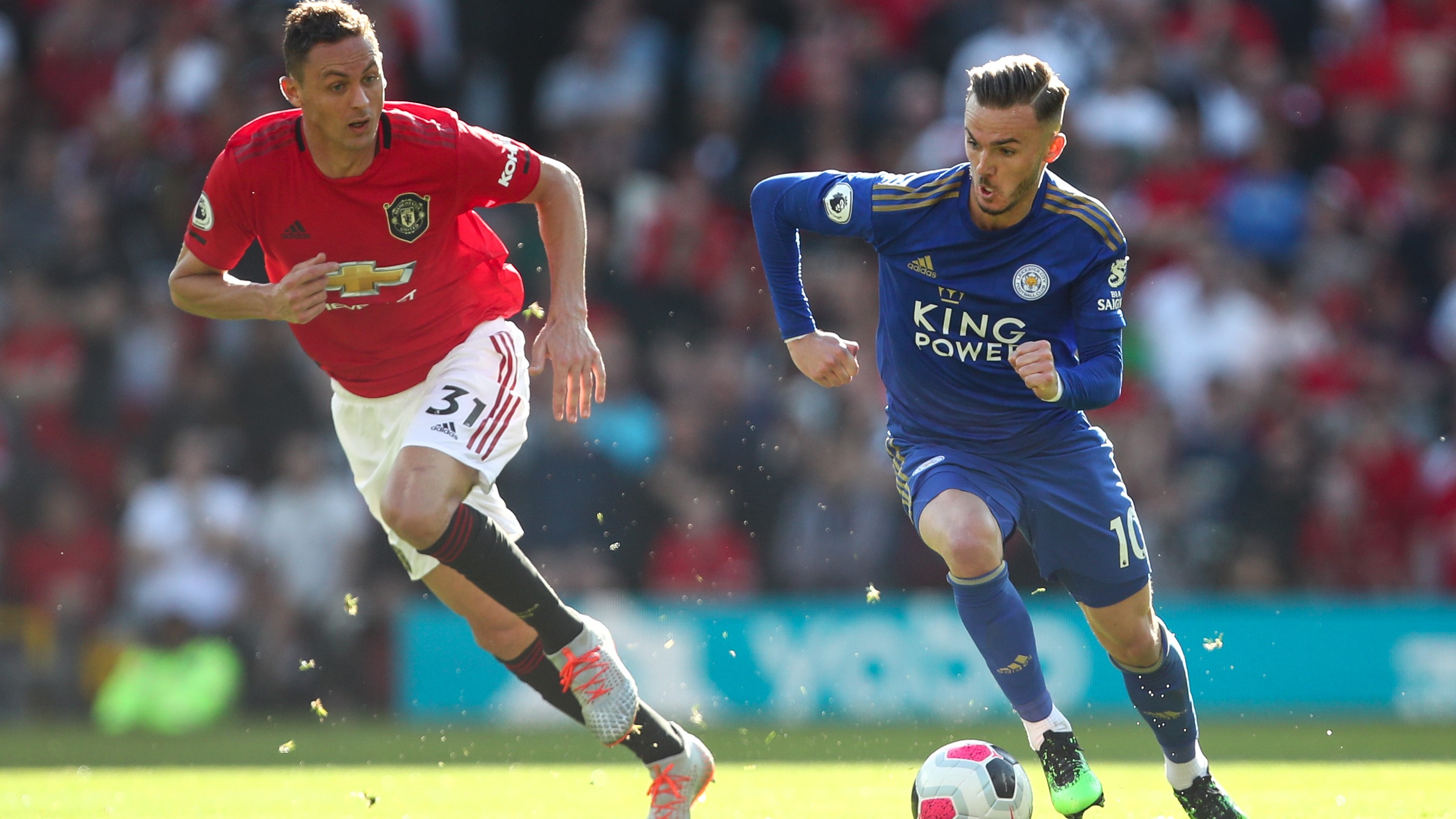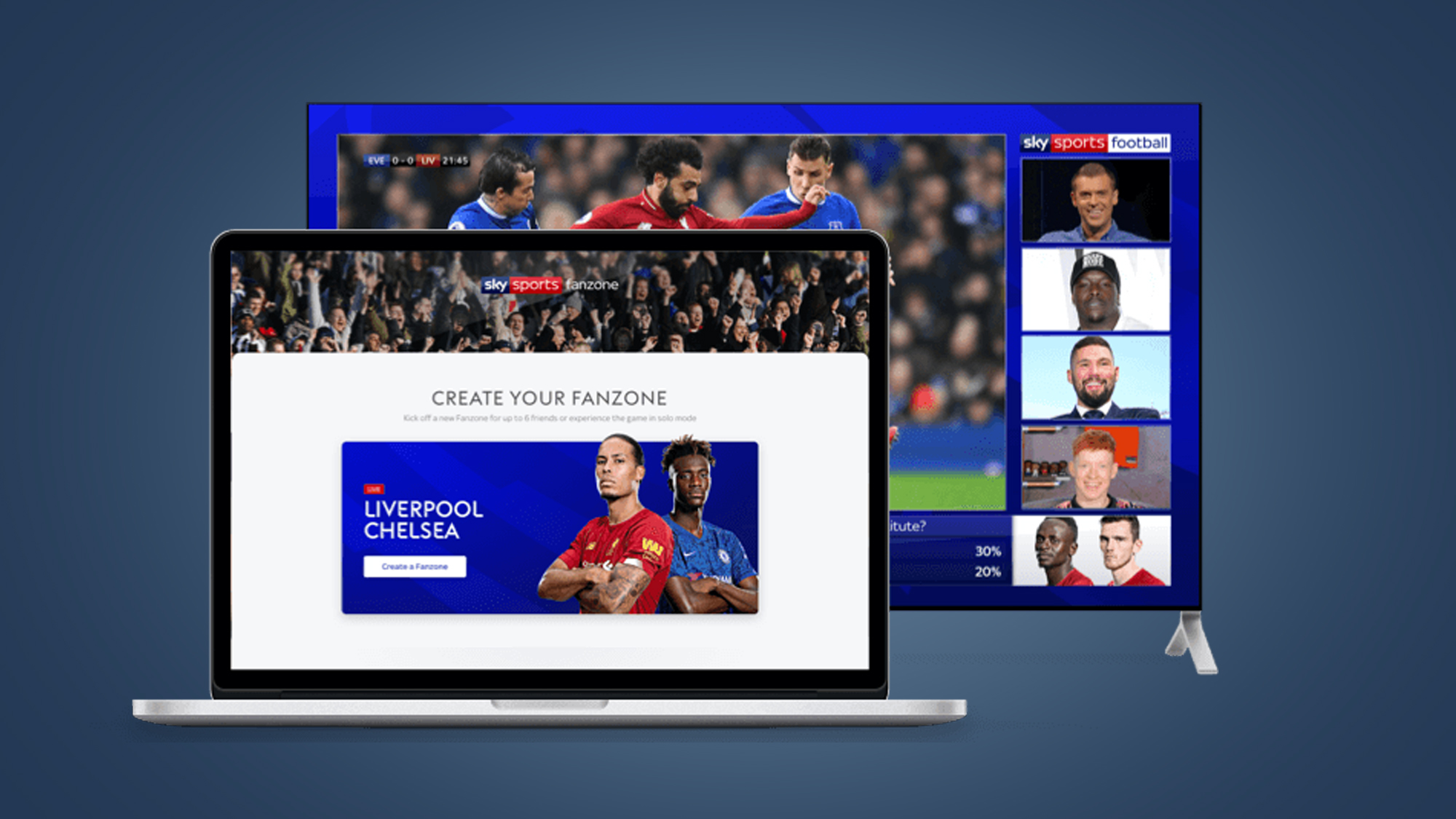Is the Premier League pushing fans into illegal streaming?
Pandemic programming means the Premier League risks inviting a surge in piracy.

Sign up for breaking news, reviews, opinion, top tech deals, and more.
You are now subscribed
Your newsletter sign-up was successful
In some ways football fans had never had it so good.
From 17 June to 26 July, barely a day passed when there wasn’t at least one Premier League game live on TV. There were so many matches to squeeze in that the 3pm Saturday broadcasting blackout – a rule introduced to protect attendances that has rightly been considered sacrosanct – was lifted for the first time since its introduction in the 1960s. Even the BBC got in on the action with a few live games of its own.
Of course, these were extraordinary times. Coronavirus restrictions meant that fans couldn’t attend games, their presence digitally substituted using crowd sounds captured by EA Sports for its FIFA games, but with the new season due to kick off on 12 September, turnstiles expected to remain closed until October at the earliest, and the Premier League deciding to return to its pre-COVID broadcasting structure, could it be pushing normally match-going fans into something altogether less legal?
Life after lockdown
According to figures published in April, last season’s 20 Premier League clubs had over 550,000 season ticket holders between them. That’s a lot of people who are going to find themselves at a loose end when things get going again next month.
Those expecting to pick up their lockdown habits where they left off are in for a nasty surprise: of the 380 fixtures due to be played over the course of the season, 160 of them won’t be available to watch live on TV. Those that are will of course require a pricey subscription to Sky Sports, BT Sport or Amazon Prime.

This leaves match-going fans out in the cold. Or, more accurately, at home with nothing to watch. If your team’s game isn’t picked for TV coverage you’re left with two options: wait for Match of the Day and hope you don’t catch the score – a virtual impossibility in a world of social media, rolling news and WhatsApp groups – or delve into the murky world of illegal streaming.
iFollow the leader
But it’s not as if there aren’t alternatives.
Sign up for breaking news, reviews, opinion, top tech deals, and more.
Earlier this week, the English Football League (EFL), which runs the three divisions below the Premier League, announced that all its games not picked for live coverage by Sky will be made available to stream online by the home clubs. Not only that, but they’ll be free to watch for each club’s season ticket holders, with a £10-per-match charge for others.
The vast majority of clubs will use the EFL’s own iFollow streaming service to do this, while the others, which include Derby County, Stoke City, Sunderland, and the recently relegated Watford and Bournemouth, will do so via their own websites.

iFollow is not a new platform. It launched in 2017 to allow expats and overseas fans of lower-league clubs to watch games that foreign TV networks might otherwise ignore, but it’s also been available to fans in this country since 2018.
iFollow isn’t seen as a competitor to Sky Sports, with comparatively small audiences and more modest production values, but under the circumstances it presents a second-best option to fans who still can’t attend games. On top of that, it’s hoped it’ll also help clubs replace a little bit of their lost matchday revenue, something that those outside of the Premier League’s bloated TV deal rely on for a far larger slice of their income.
When asked by TechRadar whether a similar system would be viable for the top flight, the chief executive of one of its clubs declined to comment, suggesting such questions should be directed towards the league itself. However, a spokesperson for the Premier League advised that a statement would not be issued, and that getting fans back into stadiums was the key consideration.
Manchesters, united?
But that’s not really good enough, is it?
Despite all the technology at our disposal, we’re in a curious position in this country where, even under normal circumstances, it can be harder for a United supporter in Salford to watch Ole Gunnar Solskjaer’s team on TV than it is for a fan in Manchester, Connecticut.
While it’s important to remember that football isn’t a TV show, televising all games when fans couldn’t attend at least showed some consideration for those who would normally be supporting from the stands.

Many have continued to pay towards their season tickets, with a lot of clubs offering to put the money paid for missed games towards the cost of entry next season. But even when crowds do start to return, grounds are expected to only be a third full at most, meaning a huge number who live nearby might as well be in Connecticut for all the access it gets them.
Football fans aren’t stupid, but they aren’t tight either. Many who go to games also fork out for monthly TV subscriptions to watch teams they don’t even support (and sometimes actively hate). Take it from this Brighton & Hove Albion fan who covered nearly 3000 miles following the Seagulls last season: even a single-camera stream with no commentary would be vastly superior to missing out entirely – and something I’d happily give up a few quid of my refund for if it meant avoiding dodgy streams.
Nobody’s demanding the full Sky Sports sheen; they just want to watch their teams. Besides, the cameras will already be in place and a lot of clubs already have local commentators they use for their own highlights packages. From a logistical point of view it should be an easy tap-in.
Football vs. piracy
Last year, the Premier League claimed it was “winning the war” on piracy – but the world looks very different now compared to 12 months ago.
Of course, by its very nature piracy is difficult to measure, although a 2015 BBC survey found that 65% of millennials admitted to streaming football matches illegally at least once a month. For those aged between 35 and 54 that fell to 33%, while just 13% of those aged 55 or over owned up to it.
With the average age of a match-going fan on the rise (from the late teens in 1968, to the early forties in 2015), many of the displaced season ticket holders may not be au fait with the ways of grey-market TV boxes and dodgy pop-up plagued websites, but clearly there’s no shortage of younger fans who can point them in the right/wrong direction.
A spokesperson for Sky Sports told TechRadar that “we need to continue to be vigilant when it comes to piracy, but there is a real concerted effort across the industry and more action is being taken to tackle the issue than ever before.”
With the 3pm blackout rule remaining suspended until fans can return, there’s a sense that the Premier League is considering a U-turn – but as it stands the only major countries that won’t be able to watch all Premier League games live when the 2020/2021 season kicks off will be Saudi Arabia, North Korea, and the home of the competition itself.
Of course, nobody knows for sure how fans will react, and while some obviously won’t want to break the law, where else will those who haven’t missed a game in years turn when the referee’s whistle blows and there’s no way for them to watch?
- The best Sky TV deals: get a sporting bargain
Tom Wiggins is a Freelance Content Manager. He has been writing for various magazines and websites for the past years including MSN South Africa, MSN UK, MSN, MSN Canada, TechRadar, Yahoo Sport UK, Red Bull, JAMA Oncology, TrustedReviews, FourFourTwo, ShortList, Wareable, Stuff India, Stuff (UK), FACT Magazine, Louder, Metro.News, PC & Tech Authority, The Set Pieces, Decrypt Media, FourFourTwo Australia, In Bed With Maradona, The Ambient, Inside Sport, The Baltimore Post, My Office News.